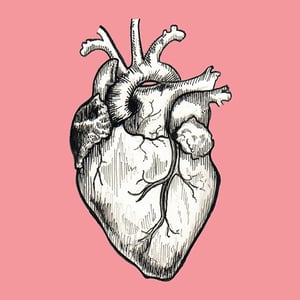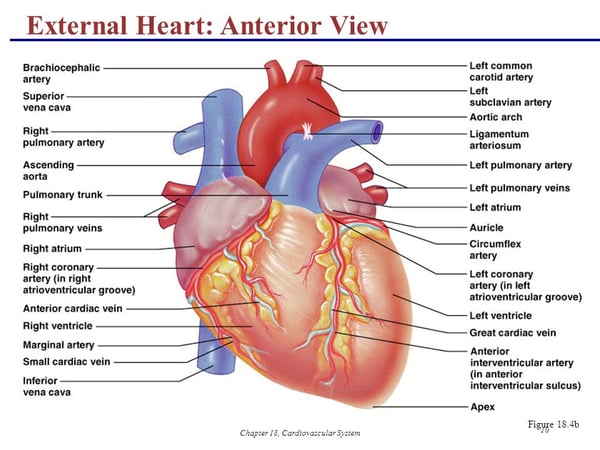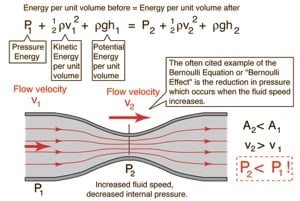In our last post on the Medical College Admissions Test (MCAT), we discussed the integration of endocrinology and physics in the cardiovascular system. This month we...
Don't Go Breaking My Heart: Cardiology on the MCAT
 Cardiology is typically a favorite topic for most students. The heart is one of the most revered organs and the majority of students are taught baseline information about the heart during their primary school education. The American Association of Medical Colleges (AAMC) also loves the cardiovascular system and often tests students’ knowledge of it in the Medical College Admissions Test (MCAT). Additionally, this cardio knowledge will serve you well as a future medical student since cardiology tends to be one of the most difficult courses. This article will discuss the cardiology content on the MCAT, interdisciplinary connections for this content, as well as some tricks and tips on how to maximize cardiology questions in the Biological and Biochemical Foundations of Living Systems section on the MCAT.
Cardiology is typically a favorite topic for most students. The heart is one of the most revered organs and the majority of students are taught baseline information about the heart during their primary school education. The American Association of Medical Colleges (AAMC) also loves the cardiovascular system and often tests students’ knowledge of it in the Medical College Admissions Test (MCAT). Additionally, this cardio knowledge will serve you well as a future medical student since cardiology tends to be one of the most difficult courses. This article will discuss the cardiology content on the MCAT, interdisciplinary connections for this content, as well as some tricks and tips on how to maximize cardiology questions in the Biological and Biochemical Foundations of Living Systems section on the MCAT.
Tackle Basic Cardiac Anatomy
First and foremost, a knowledge and understanding of basic cardiac anatomy is essential to doing well on these questions. While primary school may have taught you the four chambers of the heart, it is essential that you understand the flow of blood through the heart, systemic circulation, and the pulmonary circulation. Knowing where blood is oxygenated and deoxygenated and how it flows will serve you well in getting at least one cardiovascular question correct. It is also important to understand where valves are located, the fundamental differences between arteries and veins, and the layers found in the blood vessels. Additionally, understanding which sets of valves are associated with different heart sounds is a great way to build a foundation of your understanding for medical school. Khan Academy has great introductory videos on the circulatory system.

Integrate the Endocrine System
The cardiovascular system ties very well into the endocrine system; the link between these systems is often tested on the MCAT and is vital to your foundation of knowledge in medical school. Atrial Natriuretic peptide is often examined since it has a direct link to heart activity, however the Renin-Angiotensin-Aldosterone System (RAS) from your nephrology knowledge is also fair game since the renal system and cardiovascular system directly and indirectly impact each other. The sympathetic and parasympathetic nervous systems and their hormones such as epinephrine, norepinephrine, and acetylcholine are high yield concepts to study and understand thoroughly. Erythropoietin, while classified under nephrology information is also an important hormone to understand since it directly impacts the number of red blood cells in the cardiovascular system and manifests itself in pathologies such as polycythemia vera and anemia. Hormones are often presented as retrieval questions or very simply tested since most students have limited exposure to endocrinology prior to medical school. Because of this, these are concepts that can prove to impact your MCAT score significantly. Check out MD Hero for a basic review of the endocrine hormones tested on the MCAT.
Know Your Physics
Another way the MCAT will examine your cardiovascular knowledge is through linking it to physics concepts. The cardiovascular system physiology has a strong basis in fluid mechanics and electrical circuits. This enables the AAMC to test these concepts in a way that is integrative, similar to how you will learn during your medical education. An understanding of Bernoulli’s equation and how it would apply to the arteries and veins as they change pressures and velocities throughout the body is remarkably helpful in retaining physics concepts and understanding why the circulatory system form and function change. For example, flow (Q) is equal to area (A) times velocity (v) is another commonly utilized equation when discussing cardiac physiology. This means that because the capillaries have the largest overall area in the body, they have a slower velocity allowing them to promote gas exchange in the lungs and the tissues. Whereas the larger arteries have a smaller area compared to the capillaries, so their velocity would be greater. Additionally, the MCAT often tests on the electrical physiology of the cardiovascular system and how it links to circuits, which will be covered in my next blog post.

Grappling with these cardiology concepts early on in your medical education will serve you well as they are some of the most integrative and difficult concepts you will encounter during medical school. Spending the time to learn them now will serve to improve your MCAT score and give you a strong foundation of knowledge for your future patients. One of our professors always gently reminds us that no matter what your patient’s problem is, their cardiac health is almost always a consideration or factor in their care. Keep this in mind as motivation during your difficult days of studying; before you know it you’ll be in medical school studying these concepts at length and seeing patients with these conditions in real life.
About the Author
Jordan S. is a current medical student, and one of our most experienced MCAT tutors. Click here for more information.
